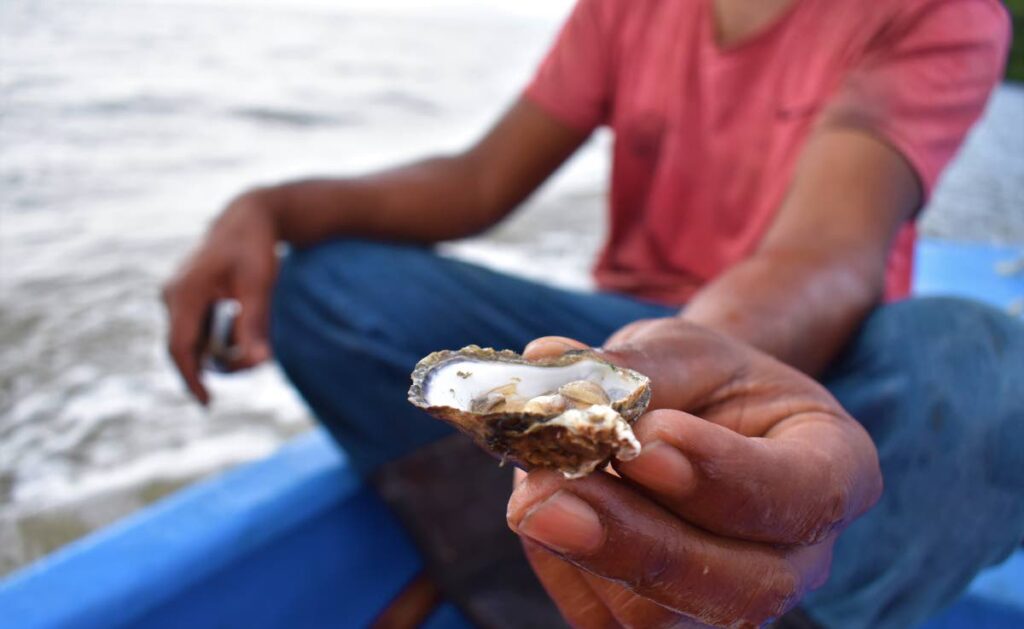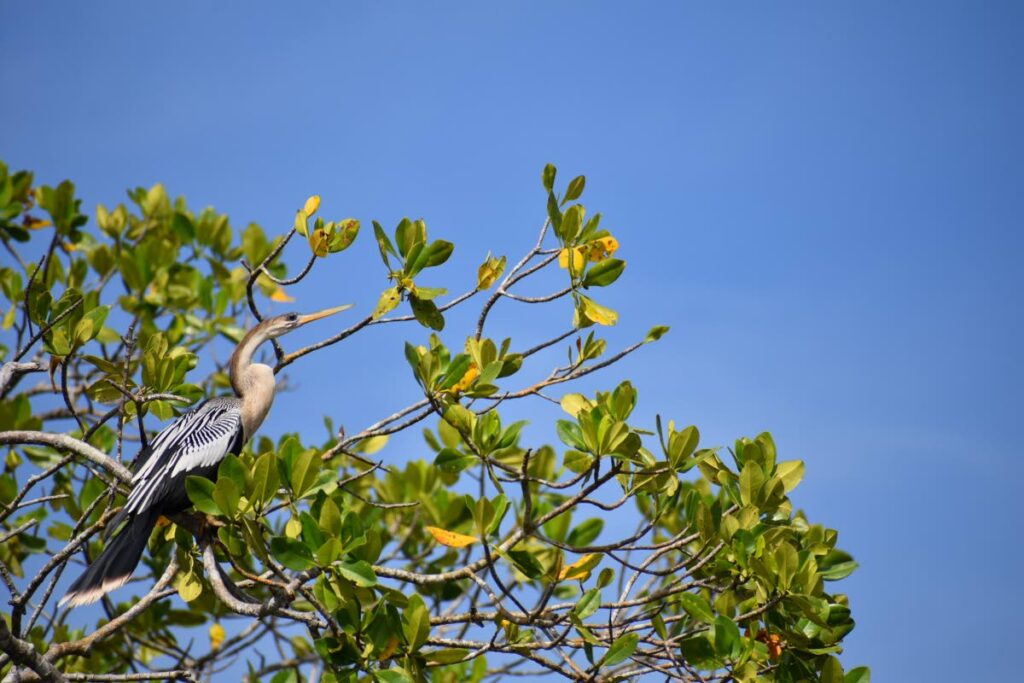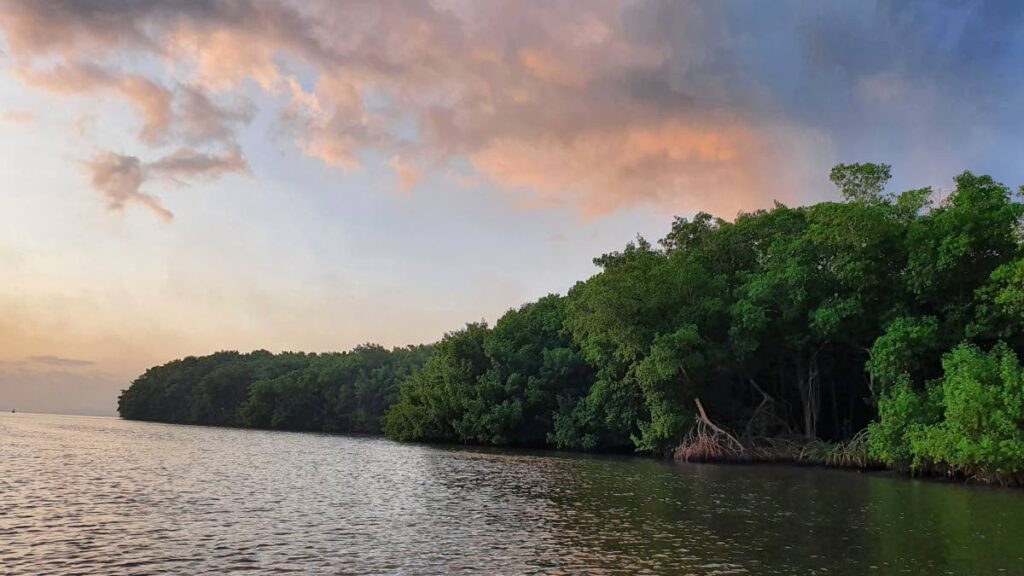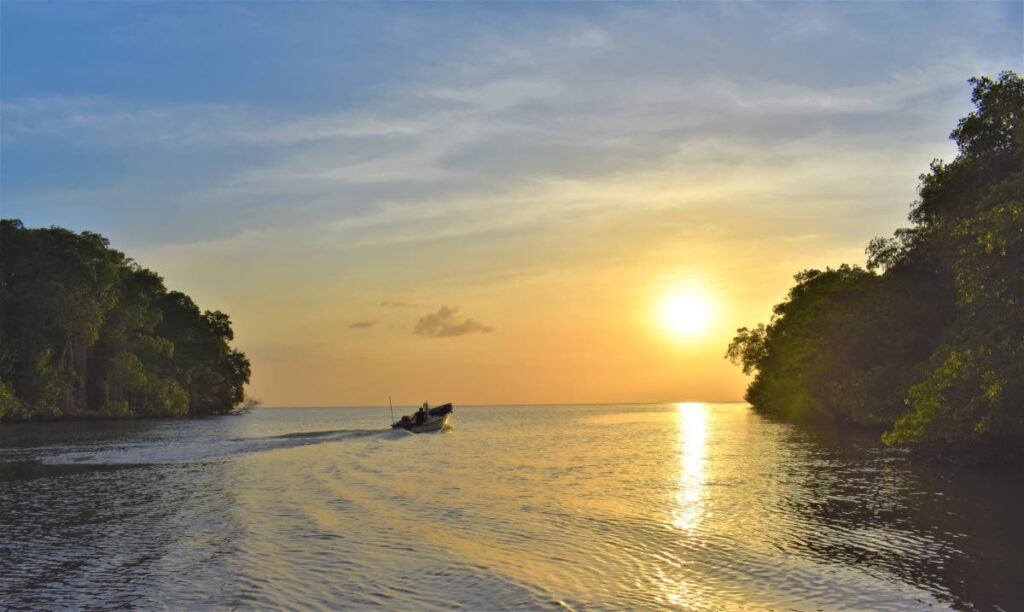Ecosystem Approach boosting tourism in Felicity

VISHANNA PHAGOO
Trinidad and Tobago is filled with many natural wonders that are still yet to be discovered, appreciated and taken care of by people in communities. Biologist Vieanna Tirbanie proved this by creating her own environmental company, Ecosystem Approach Ltd and from this, she began offering boat tours, or what she calls the Felicity Experience Tour.
I was lucky enough to be invited on this tour on May 18 and see the different species of wildlife that inhabit the river, the mangroves and the sea. I got to witness an anhinga bird in all its glory, spreading its wings to dry itself after diving in the Gulf of Paria for fish.
Tirbanie said the tour is an eco-tourism activity to bring awareness to the importance of conserving the marine life and the mangroves in the central Trinidad community. It also exposes people to different bird species like black ducks, seagulls, pelicans, scarlet ibis and even flamingoes which she said always leaves the groups in awe.
Not only did seeing so many pink and white flamingoes make the tour even more magical but so did the way the sun hit the river and sea during the tour; it was almost as if we were sailing on a river of gold. Tirbanie, the navigator Alvin Ripla and I spent almost three hours on the boat while Ripla explained the importance of replacing what's taken. He was referring to the team's work on regenerating the oyster population by introducing new methods that are yet to be adopted by fishermen and oyster harvesters. These initiatives are all voluntary.

Expanding on the methods adopted, Tirbanie explained that the idea is to place dried oyster shells
where the oyster population is noticeably lower in an attempt to get the oysters to attach to the beds and build the numbers. As we slowly sailed along the coast, we saw some oyster harvesters who were barely getting any enough oysters to sustain their businesses.
On the way back to land, Tirbanie and Ripla exclaimed that a snake was nearby which made me freeze immediately and I politely asked to be moved away from that spot. After they both giggled at me, we were on our way and after the trip, Tirbanie presented me with Indian sweets that made me drool just by the smell and looks of them.
After the tour, Tirbanie and I spent some time talking about how she engages the public in becoming aware of the issues that plague the mangroves and the wildlife. She using examples to explain the importance of preserving the mangroves when talking to the public works to her advantage so that's her go-to tactic.
Tirbanie said, "What works for us is engaging the public in casual conversation and steering it into the realities of the mangroves like the current state and ways we can all come together to conserve it."

Tirbanie said in addition to educating the public, she is working on securing a reliable team as she has successfully widened the target audience and acquired more reach. Recalling that Ecosystem Approach started with only two members including herself, she said it now has six with the hopes of encouraging more volunteers from Felicity to join the group in protecting the Cunupia River and to provide other job positions. Though, most of their tasks are situated around being in the field, Tirbanie allows her volunteers to work at home if feasible.
"We find it much more productive as everyone can put in their hours at times they see fit and they complete given tasks in a timely manner."
She said the more fisher-folks join, the better the results of the company's work. This is because their experiences in the mangrove, with the channels and marine life can bring a unique perspective, since most of the fishers in the area have been in the industry for most of their lives. She said they also provide insight into how business was before and how it treats them now, especially with the depletion of many species in the area.
Ecosystem Approach is working on including art into its approach to gain more attention around what the company is working towards.
She said the art pieces can serve as an icebreaker for the conversations. "People here appreciate art. You can see a beautiful painting of a mangrove scenery on an oyster cart or find hand-painted signs by fish vendors."
Tirbanie said the company commissions a few pieces of the mangrove and life in the Cunupia River from a Felicity resident which are featured in the company's "educational tent feature" that is erected for every function the village holds.
With the help from Forestry Division in the Ministry of Agriculture, Land and Fisheries, Ecosystem Approach was able to be incorporated as the division was responsible for aiding Tirbanie and her initial members in the legal work of officially establishing the company. The division also helps the company maintain the marine resources and asks people in other communities to do the same.

Tirbanie walked Business Newsday through the process she undertook and said in 2020, she contacted the Forestry Division and after expressing interest in what her plans were the division then directed her to the management plan of the Caroni Swamp Protected Area document which helped her bring her thoughts to life.
This document explained what groups must do to conserve the areas since they are protected. It also advised groups to keep the culture alive by educating as much as possible. Tirbanie has kept her end of the bargain by raising awareness and incorporating ways to grow the local oyster population. But she also includes historical facts and information on the significance of the Cunupia River, the land there and Felicity in general.
Tirbanie explained how the main road got its name, Cacandee. She said it was from an indentured labourer Kakandi who left India in 1875 and after earning his way out of indentureship and purchased the land, where now the fishermen conduct their sales, in 1886. Not long after, that area became Kakandi’s Settlement and today, Cacandee though spelt differently, the history is not lost because of Tirbanie.
"The indentured Indians who settled in Felicity came from various castes and their rich culture and heritage were retained so much that even today, you will find Ramleela, Divali, Phagwa and many more being celebrated."
Tirbanie said even though the company's social media following is growing "slowly and organically, the social media engagement cannot be explained by number as we measure the success based on the type of engagement."
She noted that the company's social media following is made up of organisations and people interested in what is being done for the environment.
Tirbanie said she plans to keep doing these tours and sharing the information to as many people as possible especially because she's been told on multiple occasions, "What you are doing will make a big difference in Felicity.”

Comments
"Ecosystem Approach boosting tourism in Felicity"